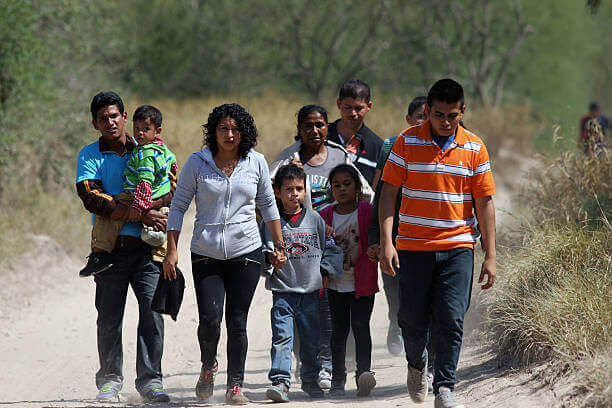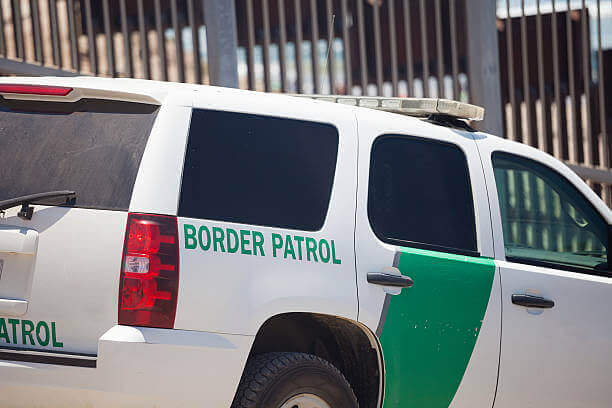This week, the Biden administration began conducting asylum interviews at the border as it expands access to legal aid for immigrants seeking refuge in the United States.
Beginning with a small number of migrants, asylum officers will begin conducting what are known as “reasonable fear” asylum interviews at U.S. Customs and Border Protection (CBP) facilities.
Asylum interviews are one of the first steps necessary to file an asylum application. Now, how and where will these interviews take place? What legal assistance will be available to asylum seekers in the United States? At Jaskot Law we will analyze this new measure and how to apply for asylum in the country.
Where do asylum interviews take place?
Currently, asylum interviews are only conducted after immigrants leave the custody of U.S. Customs and Border Protection (CBP). However, the Biden administration is anticipating a possible influx of asylum seekers amid the end of pandemic rules that gave border agents the power to quickly return migrants to Mexico or their countries of origin.

It should be noted that CBP officers and Border Patrol agents will not conduct asylum interviews out of reasonable fear; rather, persons in custody are generally interviewed by asylum officers over the telephone. Department of Homeland Security (DHS) officials said the new testing program will use asylum officers from U.S. Citizenship and Immigration Services (USCIS) to conduct reasonable fear asylum interviews at U.S. Customs and Border Protection facilities.
The new functioning of asylum interviews in the U.S.
As mentioned above, the new test program will use USCIS asylum officers to conduct reasonable fear asylum interviews at U.S. Customs and Border Protection facilities. All of this is in response to the impending end of Title 42,the rule that suspended the right to apply for asylum at the border to prevent the spread of COVID-19.
The idea is that the new reasonable fear asylum interview process will work similarly to how it works for those in Immigration and Customs Enforcement (ICE) custody. Officials say the process is designed to ensure that migrants have the ability to contact legal service providers, but ICE facilities typically have more physical space for attorney-client consultations compared to Border Patrol stations.

In addition, ICE dispute counsel often have more time to communicate with their clients and prepare a commensurate defense when detainees are held for longer periods of time.
This leads to the following questions: How will asylum seekers communicate with their lawyers? What legal aid for immigrants does the Biden administration have ready? So far, it is unknown which legal service providers asylum seekers will be able to contact, where at the border the program will begin, and how many detainees will be interviewed for reasonable fear asylum.
All of this has led to the concern of certain civil lawyers and legal aid groups for immigrantswho say that CBP and Border Patrol facilities are not in a good condition for those in need to receive the legal aid for immigrants that Biden administration officials talk about.
Legal aid for immigrants: another issue of dispute
Some members of organizations that provide legal assistance to immigrants stated that their biggest concern is that CBP facilities do not allow lawyers to enter.
Asylum interviews are generally conducted at U.S. Immigration and Customs Enforcement (ICE) facilities, which have special areas for legal consultation and formal avenues for applicants to report abuse or denial of representation. But under the new program, immigrants will be held at CBP facilities for asylum interviews out of reasonable fear.

One might think that the place where the interviews are conducted is irrelevant, but this is by no means the case. On the one hand, it influences the access of lawyers and, on the other hand, there are security and space issues that influence the well-being of applicants.
ICE has protocols and procedures designed to allow attorneys meaningful access to their current or potential clients. It may not be a perfect system, but it is a system prepared for this type of detention and for these interviews.
CBP, on the other hand, is different and there is no guarantee that it has the space to provide legal assistance to immigrants seeking asylum or guarantee the transparency of the process.
For its part, Border Patrol custody has traditionally been a place where lawyers are not allowed. Many attorneys have been asking Border Patrol to allow in-person physical access to detained clients and the agency has always resisted.
Conclusion
Regarding legal aid for immigrants, the Biden administration has pledged to expand access to free legal services for migrants seeking refuge in the United States. However, the lack of access to CBP facilities has raised additional concerns about how legal aid will be provided on site.
In summary, the new methodology of reasonable fear asylum interviews at CBP facilities could be a step toward expediting asylum claims, but questions remain as to how it will be carried out and how legal relief for immigrants in that situation will be guaranteed.
We hope that the Biden administration will address these concerns effectively to ensure that those seeking refuge in the country receive the fair and humane treatment they deserve.
If you are going through the asylum application process and have questions about how to proceed, we at Jaskot Law we can help you. Contact us at +1 (410) 235-6868 or jared@jaskot.law.
Sources
Frequently Asked Questions
Where will the asylum interviews be held?
Currently, asylum interviews are only conducted after immigrants leave the custody of U.S. Customs and Border Protection (CBP). However, the Biden administration is anticipating a possible influx of asylum seekers amid the end of pandemic rules that gave border agents the power to quickly return migrants to Mexico or their countries of origin. In response, DHS has announced a new testing program that will use asylum officers from U.S. Citizenship and Immigration Services (USCIS) to conduct reasonable fear asylum interviews at U.S. Customs and Border Protection facilities. It is unknown where at the border the program will begin and how many detainees will be interviewed for reasonable fear asylum.
How will asylum seekers communicate with their lawyers?
So far, it is unknown which legal service providers asylum seekers will be able to contact. Some members of organizations that provide legal assistance to immigrants stated that their biggest concern is that CBP facilities do not allow lawyers to enter. ICE facilities typically have more physical space for attorney-client consultations compared to Border Patrol stations. Legal counsel in disputes with ICE often have more time to communicate with their clients and prepare a commensurate defense when detainees are held for longer periods of time.
What legal aid for immigrants does the Biden administration have ready?
The Biden administration is expanding access to legal aid for immigrants seeking refuge in the United States. Asylum seekers will be assisted by U.S. Citizenship and Immigration Services (USCIS) asylum officers to conduct reasonable fear asylum interviews at U.S. Customs and Border Protection facilities. In addition, migrants will have the possibility of contacting legal service providers, although it is not known at this time which legal service providers they will be able to contact.
How will asylum interviews work in the United States?
The new trial program will use USCIS asylum officers to conduct reasonable fear asylum interviews at U.S. Customs and Border Protection facilities. The idea is that the new reasonable fear asylum interview process will work similarly to how it works for those in Immigration and Customs Enforcement (ICE) custody.

